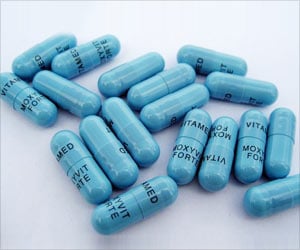
Sayeed Ikramuddin, M.D., of the University of Minnesota, Minneapolis, and colleagues randomly assigned 239 participants who had a body mass index of 40 to 45 or 35 to 40 and 1 or more obesity-related condition to receive an implanted active vagal nerve block device (n = 162) or an implanted sham (inactive) device (n = 77). All participants received weight management education. The study was conducted at 10 sites in the United States and Australia between May and December 2011.
At 12 months in the intent-to-treat population, the average percentages of excess weight loss was 24.4 percent (9.2 percent of their initial body weight loss) in the vagal nerve block group and 15.9 percent (6.0 percent initial body weight loss) in the sham group, with an average difference of 8.5 percentage points, which did not meet the primary efficacy objective of achieving superiority with a 10 percentage-point margin. Weight loss was statistically greater in the vagal nerve block group.
At 12 months, 52 percent of participants in the vagal nerve block group achieved at least 20 percent; and 38 percent, at least 25 percent of excess weight loss, which did not meet the primary efficacy objective performance goals of at least 55 percent of participants achieving a 20 percent excess weight loss and 45 percent achieving a 25 percent excess weight loss.
The device, procedure, or therapy-related serious adverse event rate in the vagal nerve block group was 3.7 percent, significantly lower than the 15 percent primary safety objective goal. The adverse events more frequent in the vagal nerve block group were heartburn, indigestion and abdominal pain attributed to therapy; all were reported as mild or moderate in severity.
"Additional studies are needed to compare effectiveness of vagal nerve block with other obesity treatments and to assess longterm durability of weight loss and safety," the authors conclude.
Advertisement
Source-Eurekalert










